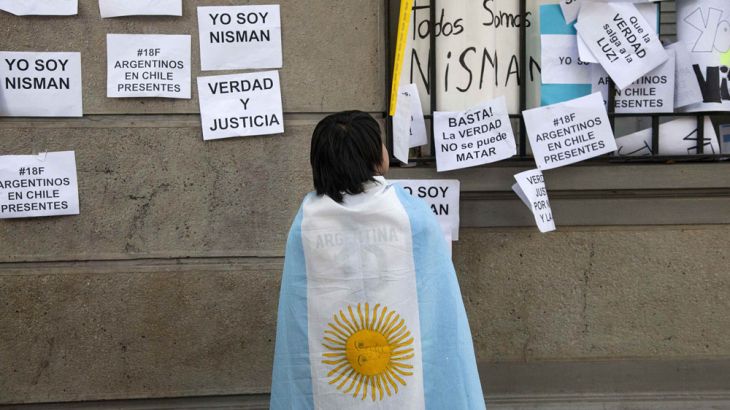
The death that divided Argentina’s media
The contradictory coverage of a suspicious death; plus, the growing politics behind the world’s most watched TV show.
Twenty-one years ago, the bombing of a Jewish community centre in Buenos Aires claimed the lives of 85 people. In January 2015, the unsolved mystery of the bombing may have claimed another life – that of Alberto Nisman, a prosecutor who was accusing President Cristina Fernandez de Kirchner of orchestrating a cover up of the attack. Nisman was found dead in his apartment from a bullet to the head.
From the time of his death to the judge throwing the case out of court this past Thursday, the coverage that has unfolded across both sides of the domestic media divide has become a story in itself. Media organisations close to the government have been at pains to discredit Nisman’s case and throw his motives into question. Private media with an axe to grind against the government have grasped at any chance to direct the focus of speculation against the president.
Keep reading
list of 4 itemsNPR editor resigns after accusing US outlet of liberal bias
Lawmakers brawl as Georgian Parliament considers ‘foreign agent’ bill
Journalist loses foot after being badly wounded in Israeli attack in Gaza
The result has been a whirlwind of doubt and rumour with political divisions firmly in the foreground.
To understand the Nisman affair and the media clamour that has surrounded it, we speak to journalists on both sides of the divide: Miguel Winazki, the chief editor of the anti-government Clarin newspaper; Nora Veiras, who writes for the pro-Kirchner newspaper Pagina/12 and works extensively in state-run TV and radio; Sebastian Lacunza, the editor-in-chief of the English-language Buenos Aires Herald; and Dr. Juan Pablo Ferrero from Bath University.
Other media stories on our radar this week: In Egypt, the legal nightmare continues for Baher Mohamed and Mohamed Fahmy, two Al Jazeera journalists still waiting for their final day in court after more than 400 days behind bars; in the United States, after NBC’s Brian Williams, now Fox News host Bill O’Reilly’s integrity is in question after doubts are raised about his claims to have reported from a warzone.
CCTV wishes you a Happy New Year
Our feature this week looks at China where viewing figures for the annual Spring Festival Gala, marking the Lunar New Year, have dropped – but it still pulls in figures of 690 million viewers, which is nearly 20-times the viewership of the Oscars. The gala is a family-friendly song and dance extravaganza with star hosts and acrobatics thrown in.
However, as The Listening Post’s Meenakshi Ravi reports, with the Chinese Communist Party increasingly at pains to present a positive image to the people, the world’s most popular TV show has grown progressively more politicised.
Over the past week, the government of Greece reached an agreement with its European creditors to extend its debt. And since the complicated economics could do with some explanation, the writers behind the Dutch satirical sketch show ‘Cojones’ have told the story through the medium of rap. You might have suspected that Yanis Varoufakis had some smooth moves, but Jeroen Dijsselbloem? Watch our online video of the week.